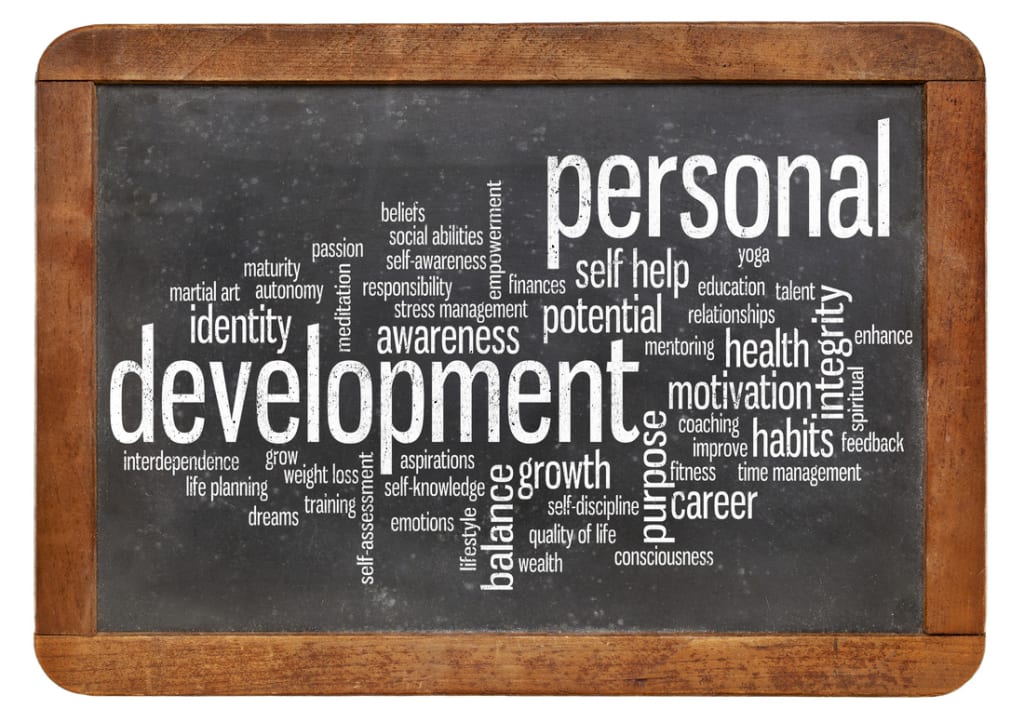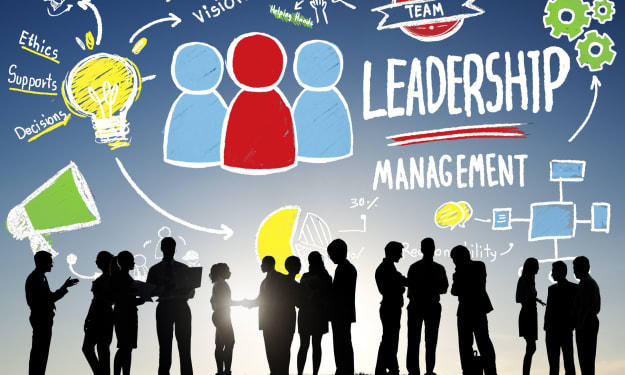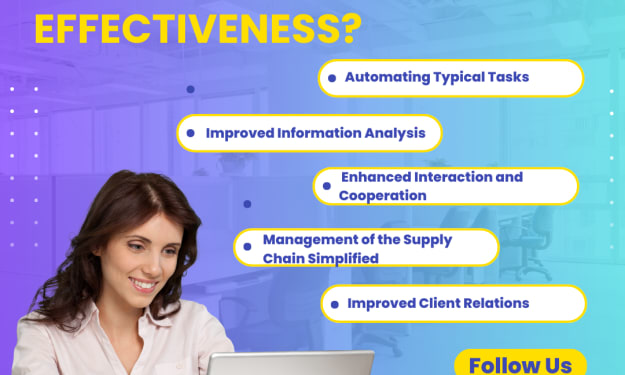Unleashing Your Potential
A Comprehensive Personal Development Guide

Introduction:
Embarking on a personal development journey is a transformative endeavor that empowers you to unlock your true potential and live a more fulfilling life. This comprehensive guide will serve as a roadmap, providing you with practical strategies, tools, and insights to navigate various aspects of personal growth. Remember, personal development is a lifelong process, and with dedication and commitment, you can create meaningful changes and become the best version of yourself.
Section 1: Self-Awareness
1.1 Define Your Values:
Reflect on your core beliefs and principles that shape your decision-making process.
Determine what truly matters to you in life and align your actions accordingly.
1.2 Discover Your Strengths:
Identify your unique talents, skills, and abilities.
Focus on honing your strengths to enhance your overall performance and self-confidence.
1.3 Understand Your Limiting Beliefs:
Recognize the negative beliefs that hold you back.
Challenge and replace these beliefs with positive, empowering thoughts.
Section 2: Goal Setting
2.1 Set SMART Goals:
Create specific, measurable, attainable, relevant, and time-bound goals.
Break them down into smaller, actionable steps for greater clarity and motivation.
2.2 Prioritize and Plan:
Determine the most important goals and establish a clear order of priority.
Develop a detailed action plan with specific milestones to track progress.
2.3 Embrace Growth Mindset:
Emphasize the journey of growth and learning rather than solely focusing on outcomes.
Embrace challenges and setbacks as opportunities for growth and self-improvement.
Section 3: Emotional Intelligence
3.1 Enhance Self-Awareness:
Cultivate an understanding of your emotions, triggers, and reactions.
Practice mindfulness and reflection to develop emotional intelligence.
3.2 Manage Emotions:
Learn techniques to regulate and express emotions effectively.
Develop empathy and understanding towards others' emotions.
3.3 Build Strong Relationships:
Develop effective communication and active listening skills.
Cultivate empathy, compassion, and understanding in your interactions.
Section 4: Personal Productivity
4.1 Time Management:
Prioritize tasks and allocate time effectively.
Use productivity techniques such as Pomodoro Technique or Eisenhower Matrix.
4.2 Organizational Skills:
Establish systems for managing information, tasks, and resources.
Declutter your physical and digital spaces for increased efficiency.
4.3 Continuous Learning:
Develop a habit of lifelong learning through reading, attending workshops, or online courses.
Embrace new skills and knowledge to stay adaptable and relevant.
Section 5: Health and Well-being
5.1 Physical Wellness:
Prioritize regular exercise, proper nutrition, and adequate sleep.
Practice self-care activities that rejuvenate your body and mind.
5.2 Mental and Emotional Health:
Cultivate positive thinking patterns and practice gratitude.
Seek support from professionals or support networks when needed.
5.3 Work-Life Balance:
Establish boundaries between work and personal life.
Engage in activities that bring joy, relaxation, and fulfillment.
Section 6: Financial Management
6.1 Budgeting and Financial Planning:
Create a budget to track your income and expenses.
Set financial goals and develop a plan to achieve them, such as saving for emergencies, investments, or major purchases.
6.2 Debt Management:
Evaluate your debts and develop a strategy to pay them off systematically.
Seek financial advice if needed to manage debts effectively.
6.3 Building Wealth:
Learn about investing, diversification, and long-term financial planning.
Develop a savings and investment strategy to build wealth over time.
Section 7: Communication and Interpersonal Skills
7.1 Effective Communication:
Improve your verbal and nonverbal communication skills.
Practice active listening, clarity in expressing ideas, and assertiveness.
7.2 Conflict Resolution:
Develop strategies to resolve conflicts peacefully and constructively.
Learn techniques for negotiation and finding win-win solutions.
7.3 Collaboration and Teamwork:
Enhance your ability to work effectively in a team.
Foster cooperation, respect, and open communication with others.
Section 8: Personal Branding and Networking
8.1 Personal Branding:
Identify your unique strengths, values, and passions.
Develop a compelling personal brand that showcases your expertise and values.
8.2 Networking Skills:
Build and nurture relationships with professionals in your field.
Attend industry events, join networking groups, and utilize online platforms for networking opportunities.
8.3 Online Presence Management:
Cultivate a professional and positive online presence.
Use social media and other platforms strategically to enhance your personal brand and connect with like-minded individuals.
Section 9: Adaptability and Resilience
9.1 Embrace Change:
Develop a mindset that embraces change as an opportunity for growth.
Learn to adapt to new circumstances and adjust your plans accordingly.
9.2 Resilience Building:
Develop strategies to bounce back from setbacks and challenges.
Practice self-care, self-reflection, and seek support when facing adversity.
9.3 Continuous Improvement:
Foster a mindset of continuous learning and improvement.
Reflect on your experiences, seek feedback, and adapt your strategies to achieve better results.
Section 10: Contribution and Giving Back
10.1 Volunteering and Community Engagement:
Find opportunities to contribute your time and skills to causes you care about.
Engage in community service and make a positive impact on others' lives.
10.2 Mentorship and Sharing Knowledge:
Share your knowledge and expertise with others.
Seek mentorship from experienced individuals to guide your personal development journey.
10.3 Acts of Kindness and Gratitude:
Practice acts of kindness daily and express gratitude for the blessings in your life.
Cultivate a mindset of generosity and appreciation for others.
Conclusion:
Personal development is an ongoing journey that requires self-reflection, dedication, and commitment. By cultivating self-awareness, setting goals, nurturing emotional intelligence, enhancing productivity, and prioritizing well-being, you can unlock your true potential and lead a more fulfilling life. Remember, progress may not always be linear, but each step you take towards personal growth brings you closer to becoming the best version of yourself. Embrace the process, stay resilient, and keep growing.
About the Creator
Frank Odhiambo
Frank Odhiambo is a seasoned and passionate writer renowned for his compelling and thought-provoking pieces. Global award winner for "Voice of reason" He has established himself as a prominent voice in the world of authors and writers.
Enjoyed the story? Support the Creator.
Subscribe for free to receive all their stories in your feed. You could also pledge your support or give them a one-off tip, letting them know you appreciate their work.






Comments
There are no comments for this story
Be the first to respond and start the conversation.